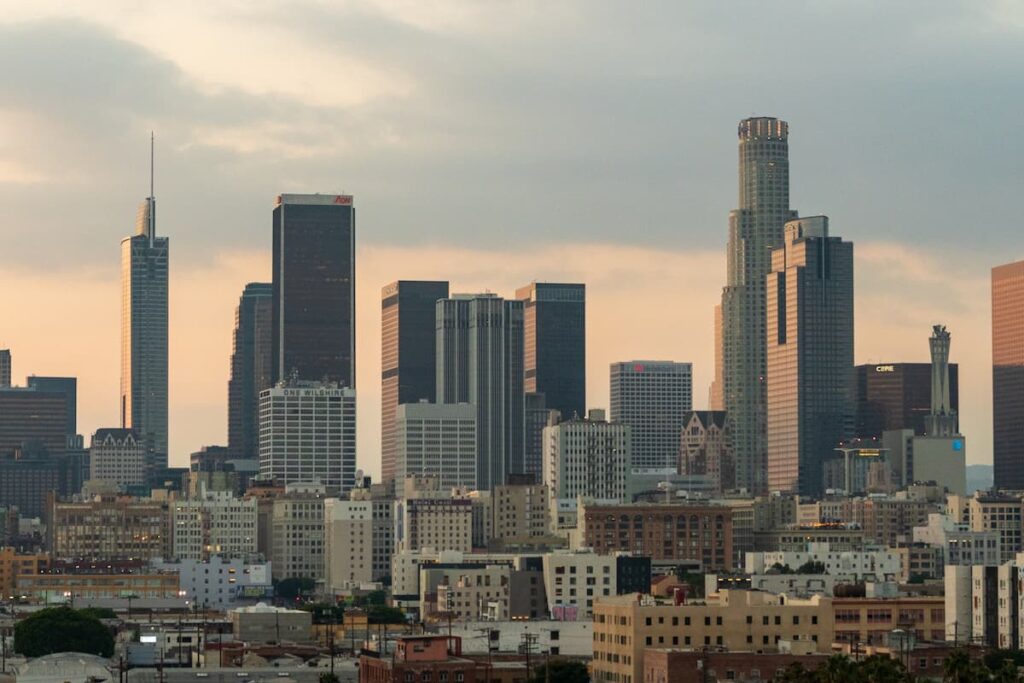Federal Deployment in LA Triggers Nationwide Reactions
Tensions continue to rise in Los Angeles following the deployment of thousands of National Guard troops in response to mass protests sparked by immigration enforcement operations. As demonstrators flood city streets, blocking major highways and surrounding federal facilities, the situation has become a flashpoint in the ongoing national debate around immigration and federal authority.
This wave of unrest stems from aggressive raids targeting undocumented communities, which have led to heavy-handed police responses and visible military presence in the downtown area. Protesters, including immigrant advocacy groups and concerned citizens, have gathered for consecutive days to voice their opposition to the government’s actions. Law enforcement has responded with crowd control tactics, including non-lethal ammunition that has injured several international journalists on the scene.
Local authorities have declared parts of downtown Los Angeles as restricted zones, intensifying public concerns over civil liberties and the balance between national security and community rights. While some federal agents are focused on carrying out immigration orders, state and local forces operate under different guidelines, creating a chaotic enforcement environment.
A Nation Divided: Contrasting Political Responses
The federal response has sharply divided political leaders, exposing deep ideological rifts. On one side, Democratic lawmakers have decried the military-style tactics and warned of authoritarian overreach. They argue that the situation goes beyond immigration, framing it as an attack on civil liberties and marginalized communities. Their focus has been on protecting immigrant populations and calling for peaceful demonstrations.
Some legislators have expressed concern that even American citizens are being mistakenly detained, simply for appearing Hispanic. Others have emphasized the importance of due process and accused the administration of escalating tensions with little regard for human rights.
Meanwhile, Republican leaders have stood firmly in support of the crackdown, portraying the protests as a threat to public order. They characterize the demonstrators as defending unlawful behavior and have dismissed Democratic criticism as political theater. Statements from key figures have praised the deployment and insisted that strong enforcement is essential to maintaining national security.
This divide has played out publicly, with several confrontations between lawmakers making headlines. The contrast in perspectives—protection of immigrants versus defense of national law—has underscored the ideological polarization that now defines U.S. discourse on immigration.
Escalation on the Ground and Online
As protests stretch into multiple days, the intensity on the ground has mirrored the escalating rhetoric online. Videos and images from Los Angeles show crowds clashing with police, fires set to autonomous vehicles, and heavily armed guards patrolling city streets. Social media has amplified the situation, turning it into a battleground for competing narratives.
While some voices call for calm and non-violence, others have used the moment to rally support for stricter immigration policies. Public reactions have been just as polarized as those of political figures, with many either condemning the government’s tactics or demanding even harsher measures.
Confusion is growing over the roles of different agencies involved. Federal forces and local police appear to be working under different protocols, and their overlapping presence has contributed to inconsistent and sometimes chaotic enforcement. Protesters and residents alike have expressed uncertainty over who is in charge and what rules are being applied.
Looking Ahead: A Test for Democracy
What’s happening in Los Angeles is not just a local crisis—it’s a national litmus test. The convergence of immigration policy, militarized policing, and political division has placed the city at the center of a broader battle over American identity and governance.
For immigrant communities, the events have fueled fear and uncertainty. For political leaders, they have become a stage to showcase sharply different visions for the country’s future. As demonstrations continue and calls for justice grow louder, Los Angeles remains a symbol of the tensions shaping the national conversation.
The coming days will reveal whether peaceful protest and institutional checks can redirect the current trajectory—or whether the nation will continue down a path of deepening division and confrontation.


